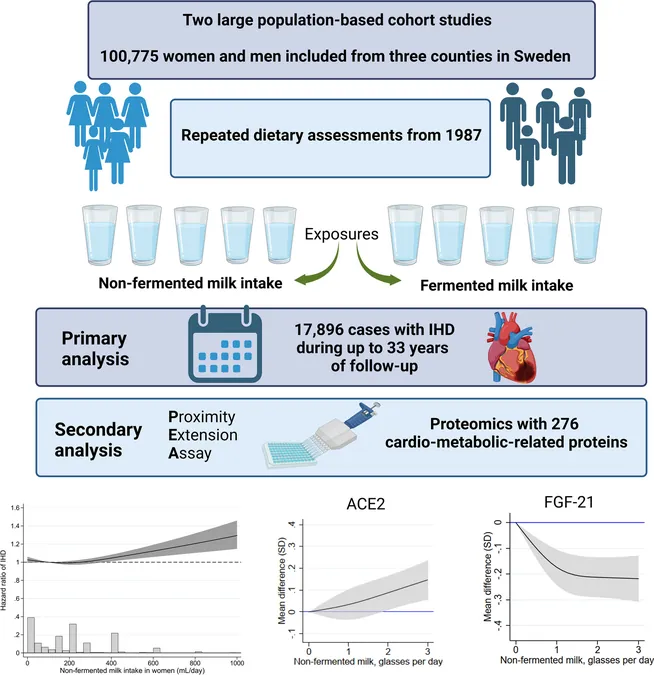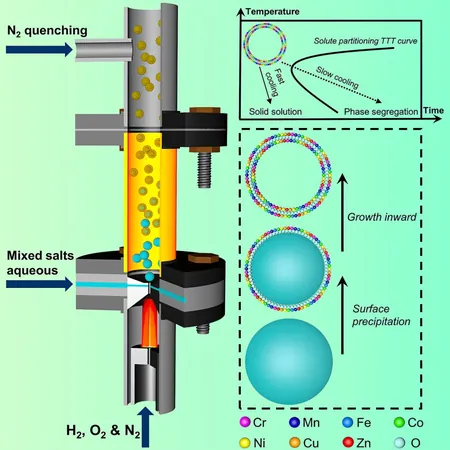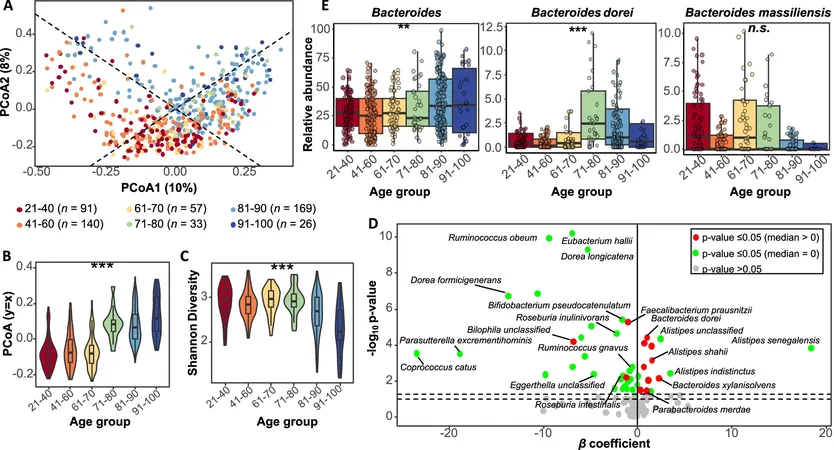
Shocking Revelations: The Impact of Non-Fermented and Fermented Milk on Heart Disease Risk Among Swedish Men and Women!
2024-11-08
Author: Wei Ling
Study Background
Since the late 1980s, the SMC has meticulously tracked the health and lifestyle habits of over 90,000 women, while COSM has gathered data from about 100,000 men. Both cohorts represent a significant cross-section of the Swedish population, providing a robust dataset for evaluating dietary impacts on health. With participants sharing insights through extensive questionnaires over the years, this research benefits from a wealth of dietary information.
Dietary Insights
The investigators focused on both non-fermented (like whole and low-fat milk) and fermented (yogurt and sour milk) dairy products. Participants reported their consumption frequency of various foods, helping researchers draw precise connections between dairy intake and heart disease risk. Alarmingly, average daily non-fermented milk consumption stood at 240 mL for women and 290 mL for men, with 9% of women and 15% of men consuming as much as 600 mL or more daily.
Heart Disease Findings
Over the decades-long follow-up period, 9,534 women and 8,362 men were diagnosed with IHD. A concerning pattern emerged—higher non-fermented milk intake was linked to increased risks of IHD, particularly for women! Notably, women consuming more than 300 mL daily had a notable spike in risk, translating to a 21% increase at the highest consumption levels! Surprisingly, no similar association was found for men, leaving experts puzzled.
Fermented Milk: A Different Story
In stark contrast, fermented milk consumption did not exhibit the same health risks. While initial analyses hinted at a potential protective effect against IHD, adjusting for various lifestyle factors nullified these associations.
Exploring Cardiometabolic Proteins
Diving deeper, the study also examined cardiometabolic proteins in participants. Noteworthy was the discovery of two proteins—angiotensin-converting enzyme 2 (ACE2) and fibroblast growth factor 21 (FGF21)—that showed interesting dynamics with dairy intake. Higher non-fermented milk consumption led to increased ACE2 levels, a known risk factor for cardiovascular issues, while high FGF21 levels were linked with adverse implications for heart health.
Conclusion: A Call to Rethink Dairy Intake
These compelling findings raise essential questions about dietary practices, calling into question the health benefits traditionally associated with dairy. As experts continue to analyze the intricate relationship between milk consumption and heart disease risk, this research could herald a new perspective on dietary guidelines, particularly emphasizing moderation in non-fermented milk for women.
Stay tuned as these revelations unfold and rethink your dairy decisions—the health of your heart could depend on it!




 Brasil (PT)
Brasil (PT)
 Canada (EN)
Canada (EN)
 Chile (ES)
Chile (ES)
 España (ES)
España (ES)
 France (FR)
France (FR)
 Hong Kong (EN)
Hong Kong (EN)
 Italia (IT)
Italia (IT)
 日本 (JA)
日本 (JA)
 Magyarország (HU)
Magyarország (HU)
 Norge (NO)
Norge (NO)
 Polska (PL)
Polska (PL)
 Schweiz (DE)
Schweiz (DE)
 Singapore (EN)
Singapore (EN)
 Sverige (SV)
Sverige (SV)
 Suomi (FI)
Suomi (FI)
 Türkiye (TR)
Türkiye (TR)